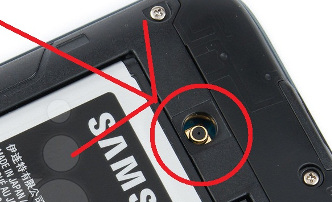2G has already being shut down in Switzerland, South Korea, Australia, Singapore, and more to come until the phone is on the market.
Most countries have 3G and 4G networks.
There are only 19 countries with exclusively 2G (7 Africa, 7 islands in the Pacific ocean, and 5 in the Caribbean).
These networks have probably no access to GPRS internet (except of some very light pages), so there’s low interest in online privacy.
And VoIP doesn’t work over GPRS (too slow)
=> So i think 2G can be removed from Librem5 specifications.
Since many 3G/4G modems support 2G as well we kept it in. Of course we are aware that 2G is being phased out. Though on the other hand German Telekom speculated that they might consider phasing out 3G even before 2G because there are quite some embedded 2G devices out in the field, like remote data acquisition or signaling applications using 2G - cheap, easy to implement etc.
We do not know yet what operators will do. What we know is that 2G and 3G are not a safe bet for the mid term future, yes. That’s why we definitely aim for 4G.
Cheers
nicole
I’m in Canada now, and my 3G or 4G (I don’t know) modem works only as 2G here. Although, I bought it in Europe.
@Trastor,
look at the bands of your operator here https://en.wikipedia.org/wiki/Mobile_country_code
probably your modem works on other bands.
The only common band between Europe and Canada is LTE 2600, so you’ll need both your modem and provider to work on that band. Else it will fallback to GSM.
Librem5 will work on all bands so you will not have the issue you have with your modem, you’ll be able to roam worldwide in LTE (4G).
Well, I would not go as far as to say “all bands” but we want to support as many as possible, at least concerning the actual frequency bands. We can not say the same for proprietary provider extensions which especially some operators in the USA require.
Cheers
nicole
bit of an old post, but would you mind clarifying that? As in which carriers will be problematic? I’m going to assume T-Mobile, Sprint, and/or Verizon since at&t tends to use the same bands as the rest of the world or at least Europe (but not always…).
Hi,
frankly, we can not yet say for sure since this depends on the final hardware choices. We have different possible candidates for the mobile modem and need to negotiate their requirement with the manufacturers now. We will soon have to plan a big visiting tour to different manufacturers and negotiate their capabilities, requirement and sources with what we have on our wish list. We also have to keep power and space constraints in mind. The different modems we have have different capabilities but also pretty different sizes, power requirements etc. And finally they are different in terms of possible freedom we might be able to squeeze out of them. Some are completely closed, some are a little open.
So, we can not say anything definitive yet, sorry.
But we are trying to support as many bands and carriers as we can. But we will not be able to support all, that’s for sure. Best for you is to choose a carrier that does not require proprietary extension or blessings (e.g. I am living in Germany and I am always amazed how much power carriers in the USA still have… here in Germany this kind of monopoly has been broken many years ago so here it is just a matter of technology and not of a firmware support a special carrier).
Cheers
nicole
2G is still a desirable feature in the UK for people who spend time on the road or in rural areas. Like Germany, our 2G networks might outlive the 3G ones, and 2G often fills large gaps in the 3G and 4G coverage.
Second that. Also 2G often reaches up to 30 nautical miles into the sea. This is most of the area of a Baltic Sea 
If i understood correctly, the Librem5 will have a VoIP number.
Is it technically possible to work in GPRS? If i remember well the speed is around 50kbps down and 10kbps up.
True, it’s probably not very sensible to use VoIP over GPRS. 50Kbps/10kbps is enough for highly compressed voice data, but the latency will get you. (The basic GSM standard can go as low as 5.6kbps for voice calls, but it’s circuit switched so you don’t get the latency issues you would on GPRS/EDGE.)
But the Librem 5 is advertised as having the option of working as a “traditional” cellular phone on the PSTN, so 2G is useful if you want to make “traditional” calls on the cellular network rather than using VoIP.
GPRS is also adequate for some limited web browsing, email, messaging, SSH into servers, and other low-bandwidth applications.
With EDGE (“2.75G”) you get about 112kbps down (theoretically more, but that’s my experience). That’s enough for streaming some internet radio stations. (48k and 96k streams.) I’ve done that.
So there are plenty of applications besides VoIP which can make use of 2G data rates.
On a related matter:
I hope you take antennae seriously (size, orientation, etc.). In the recent years some upper-class phones have appeared that were not so upper-class in that regard. Maybe even an antenna connector (at least internal, under the hood) could be added.
